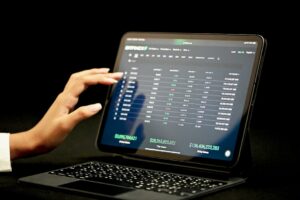Avoiding Common Mistakes on Your Forex Practice Account: A Guide for Traders
Forex trading can be an exciting and potentially lucrative venture for traders. However, it is also known for its high volatility and risk. To mitigate these risks, many traders begin by opening a practice account, also known as a demo account, to gain experience and refine their trading strategies.
A practice account allows traders to simulate real-market conditions without risking their hard-earned money. It provides an opportunity to understand the intricacies of the forex market and test various trading techniques. However, even on a practice account, traders often make common mistakes that can hinder their learning experience. In this article, we will discuss some of these mistakes and provide a guide for traders to avoid them.
1. Treating the Practice Account as a Game:
One of the most common mistakes traders make is not taking their practice account seriously. They treat it as a game rather than an opportunity to learn and grow as a trader. It is essential to approach your practice account with the same seriousness and discipline as you would with a live trading account. This means following a trading plan, setting realistic goals, and analyzing your trades.
2. Neglecting Risk Management:
Risk management is a crucial aspect of forex trading, and it should not be overlooked even on a practice account. Many traders make the mistake of not setting proper stop-loss orders or risking too much of their virtual capital on a single trade. It is important to remember that the goal of a practice account is to learn how to manage risk effectively. By implementing proper risk management strategies, traders can develop good habits that will be invaluable when trading with real money.
3. Ignoring Fundamental Analysis:
Technical analysis is often the go-to strategy for traders, but neglecting fundamental analysis can be a significant mistake. Fundamental analysis involves analyzing economic indicators, news events, and geopolitical factors that can impact currency prices. Traders should not solely rely on charts and indicators but also consider the larger economic context. A practice account provides an excellent opportunity to understand the impact of fundamental factors on currency movements.
4. Overtrading:
Overtrading is a common mistake that traders make, both on practice accounts and live accounts. It involves excessive trading, often driven by the desire to make quick profits. Overtrading can lead to emotional decision-making, fatigue, and poor trade execution. It is important to resist the urge to trade excessively and instead focus on quality trades based on a solid trading plan.
5. Not Reviewing and Analyzing Trades:
Another mistake traders make on practice accounts is failing to review and analyze their trades. Every trade, whether profitable or not, provides an opportunity for learning. By reviewing your trades, you can identify patterns, mistakes, and areas for improvement. Traders should keep a trading journal and record their thoughts, analysis, and emotions for each trade. Regularly reviewing and analyzing trades will help develop a deeper understanding of the forex market and refine trading strategies.
In conclusion, a practice account is a valuable tool for traders to gain experience and refine their trading skills. However, it is important to avoid common mistakes that can hinder the learning process. By treating the practice account seriously, implementing risk management strategies, incorporating fundamental analysis, avoiding overtrading, and reviewing trades, traders can maximize the benefits of a practice account and enhance their chances of success in the forex market.





